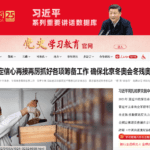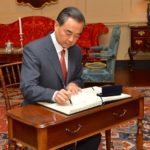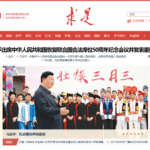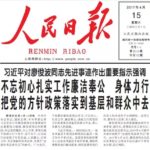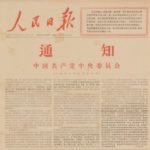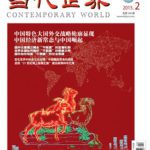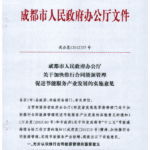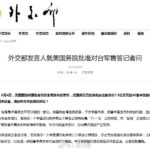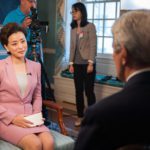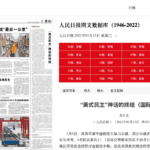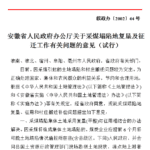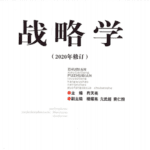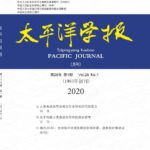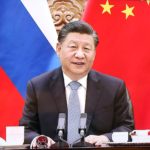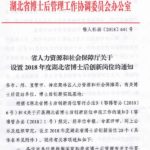Library
| Title | Published | Uploaded | Source | Author | Media Type | Category | Tags | Related Analysis |
|---|
|
The Belt and Road Initiative and China’s Breakthrough of United States Technology Containment – Taking China’s Cooperation with Southeast Asia as an Example
“ 一带一路” 建设与中国破局美国技术遏制 ———以中国与东南亚地区合作为例
This article, penned by scholars from the Chinese Academy of Social Sciences and Tongji University, explores how China can use the BRI to navigate U.S. trade and technology controls. Drawing on three case studies of BRI projects in Southeast Asia, the authors suggest Beijing can better insulate itself from the impact of U.S. controls through deepened economic integration with BRI partners. They also argue it will be important to ensure BRI projects benefit partners in areas from technology upgrading to human capital development, to challenge what they see as Western efforts to discredit the BRI among China’s neighboring countries. |
Bu Yanjun 部彦君, Gao Cheng 高程, Xue Lin 薛琳 | |||||||
|
U.S. Technology Competition with China and China's Countermeasures from the Perspective of Technology Power
技术权力视角下美国对华技术竞争及中国应对
A pair of Chinese economists argue that the U.S. will have a difficult time effectively de-risking from China due to a variety of hurdles, including tensions with allies over the speed and scope of strategies, vested U.S. business interests, and partisan debates about China policy within the United States. To limit the scope and impact of U.S. technology and economic policies, they suggest, Beijing should seek to improve diplomatic relations with U.S. allied and partner nations, expand economic ties with developing countries, remain open to diplomatic engagement with Washington, and invest in China’s science and technology ecosystem to address innovation bottlenecks. |
Gu Xueming 顾学明, Liu Yiming 刘一鸣 | |||||||
|
Faced with Technology Decoupling by the United States, China Must Establish an Industrial Base for Integrated Circuits
面对美国的科技脱钩,中国必须建立集成电路的产业基础
Lu Feng, a Peking University professor, argues a closed-loop domestic integrated circuit (IC) supply chain is urgently needed in the face of U.S. and allied technology controls. He suggests Beijing advance this goal by encouraging Chinese enterprises in the field to buy from and sell to each other – decisions that, Lu argues, will be made easier by U.S. technology controls. Lu also suggests China play to its strengths and use its expansive market as a source of leverage to influence the scope of such controls. |
Lu Feng 路风 | |||||||
|
Taking Solid Steps in the Construction of a Manufacturing Power and a Cyberpower: New Achievements in China’s Industry and Information Technology Development Since the 18th Party Congress
制造强国和网络强国建设迈出坚实步伐: 党的十八大以来我国工业和信息化发展新成就
One of China’s senior-most industry and technology regulators summarizes China’s progress in technological advancement since the 18th Party Congress in 2012. |
Miao Wei 苗圩 | |||||||
|
The Next Step in Superpower Construction: Building an Outstanding National Innovation Ecosystem—Insights from the Breakthroughs of the United States in Organization Mechanisms for High-Tech Key Technology Research and Development
强国建设的下一程:构造卓越的国家创新生态体系 ——美国突破性高科技关键技术研发组织机制的启示
The former chief economist of the Shanghai Stock Exchange analyses America’s technology ecosystem to see what lessons it might offer for China. |
Hu Ruyin 胡汝银 | |||||||
|
Analysis of Space Cooperation Between China and Russia
中国与俄罗斯太空合作分析
Lengthy analysis of Sino-Russian cooperation as a force for diplomacy and multipolarity in space, emphasizing the two countries’ opposition to a perceived U.S. arms race and weaponization of space. |
He Qisong 何奇松, Ye Nishan 叶妮姗 | |||||||
|
A Reshaped World? New Features of Artificial Intelligence and National Security under the Rise of ChatGPT
被重塑的世界?ChatGPT崛起下人工智能与国家安全新特征
Scholars from Huaqiao University explore the implications of generative AI for China’s prosperity and national security, following the launch of ChatGPT. They emphasize the pivotal role leadership in AI research and applications will play in global power distributions going forward, given implications for standards-setting ability, productivity growth, and information control. |
Huang Rihan 黄日涵, Yao Haolong 姚浩龙 | |||||||
|
The Situation and Dilemmas of the Biden Administration's Strategic Competition with China
拜登政府对华战略竞争的态势与困境
Executive director of the Institute of International Studies of Nanjing University, Zhu Feng, and research assistant Ni Guihua, react to the Biden administration’s Indo-Pacific strategy. Zhu and Feng view the policy as a partially aimed at constraining China’s development. |
Ni Guihua 倪桂桦, Zhu Feng 朱锋 | |||||||
|
Critical Dimensions and Strategic Points for Building a Manufacturing Power
制造强国建设的关键维度和战略要点
An assessment of China’s high tech manufacturing capabilities by a researcher from the Chinese Academy of Social Sciences. |
He Jun 贺俊 | |||||||
|
Wu Zhaohui, Member of the Party Group and Vice Minister of the Ministry of Science and Technology: Brain-Computer Intelligence and Human-Computer Collaboration are Important Directions for AI Development
科学技术部党组成员、副部长吴朝晖:脑机智能、人机协同是人工智能的重要发展方向
Wu Zhaohui, vice minister of the Ministry of Science and Technology and China’s lead delegate at the 2023 Bletchley AI Summit, delivered a keynote address at a summer 2023 AI conference in Beijing. This news coverage includes highlights of his speech where he suggested ChatGPT will usher in a ‘new industrial revolution,’ and have significant impacts on labor, production, business models, and the global economic landscape more broadly. |
